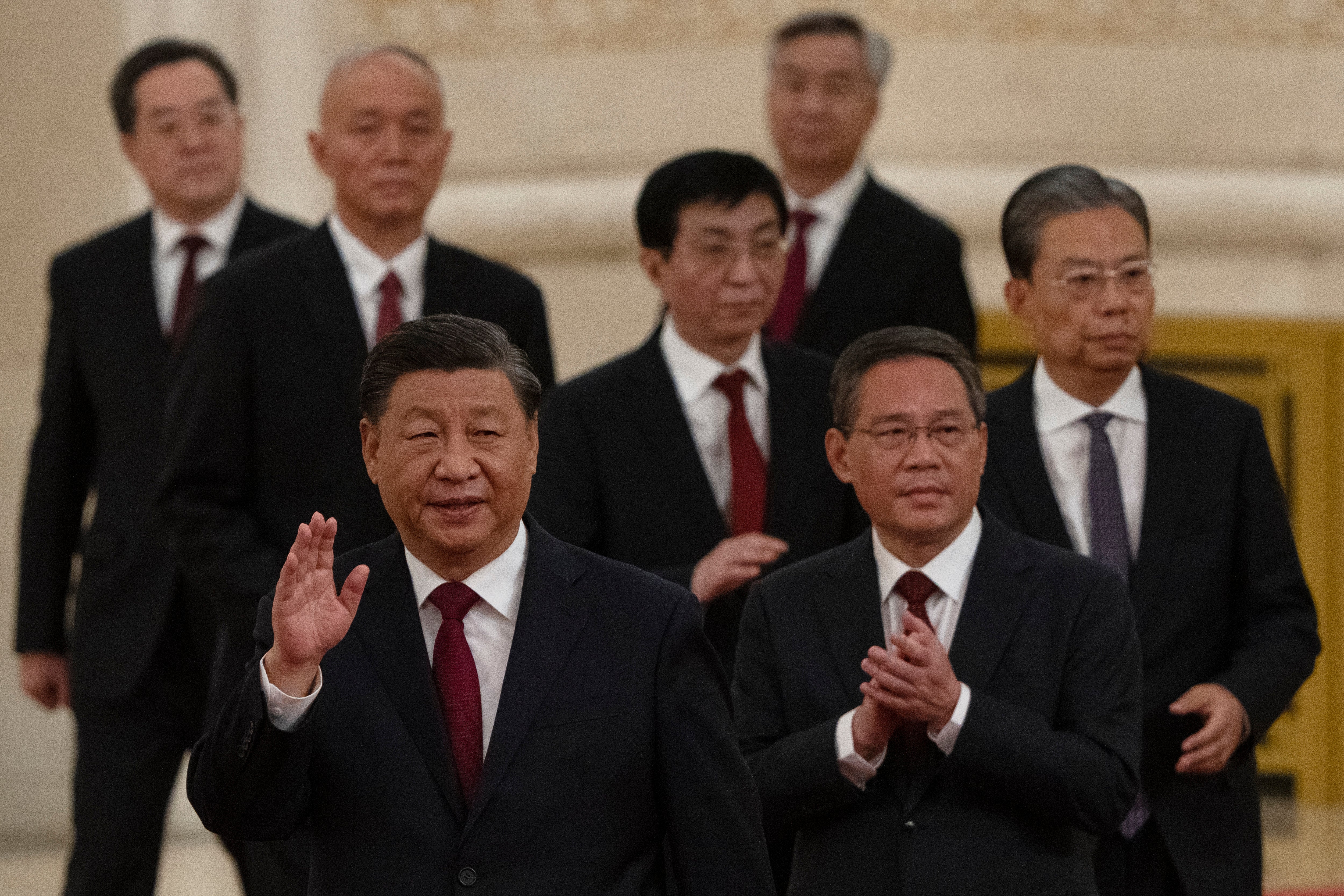Xi Jinping’s third term begins with Chinese shares sliding after Congress ends with no let-up on zero-Covid
Alibaba’s stock drops sharply, falling below its initial public offering price for the first time since 2016

Your support helps us to tell the story
From reproductive rights to climate change to Big Tech, The Independent is on the ground when the story is developing. Whether it's investigating the financials of Elon Musk's pro-Trump PAC or producing our latest documentary, 'The A Word', which shines a light on the American women fighting for reproductive rights, we know how important it is to parse out the facts from the messaging.
At such a critical moment in US history, we need reporters on the ground. Your donation allows us to keep sending journalists to speak to both sides of the story.
The Independent is trusted by Americans across the entire political spectrum. And unlike many other quality news outlets, we choose not to lock Americans out of our reporting and analysis with paywalls. We believe quality journalism should be available to everyone, paid for by those who can afford it.
Your support makes all the difference.Shares of Chinese companies listed in the US went into a freefall on Monday, just a day after Xi Jinping began his historic third term.
Alibaba’s stock dropped sharply yesterday, falling below its initial public offering price for the first time since 2016. Shares for Alibaba and Baidu fell by at least 12 per cent in New York.
Investors are now alarmed by Mr Xi’s third term as they already have faced political uncertainty in China. They also feared the economy will be held back by the regime’s hardline Covid restrictions.
The country’s zero-Covid policies have put some of the biggest financial and economic hubs, like Shanghai, in immense economic strain because of prolonged lockdowns.
China’s economy in the third quarter expanded at 3.9 per cent, beating economists’ estimates and rising sharply from last quarter’s 0.4 per cent. But this data was overshadowed by Mr Xi’s tighter control of the Chinese government and his increased power.
The Associated Press reported that Mr Xi wants a bigger role for the Communist Party in China’s business and technology development, raising fears that a centralised control will stunt an already slowing economy.
But that might not mean major policy changes, said Iris Pang of ING. That’s because “most, if not all, existing policy decisions has (sic) been agreed with Xi. This applies to potential changes in the central bank governor, banking regulator and economic adviser,” she said.
“Xi’s power play is negative for markets and China’s long-term trajectory because it removes officials with the inclination and ability to moderate his policies and agitate for needed reforms,” Michael Hirson, head of China Research at 22V Research, an organisation that focuses on investment strategy and economic projections, was quoted as saying by financial news magazine Barron’s.
Alibaba shares fell by 17 per cent, with tech peer JD.com (JD) dropping 18.9 per cent, while Tencent and Pinduoduo (PDD) fell by 15.3 per cent and 31 per cent respectively.
It was also reported after Mr Xi’s takeover that Hong Kong stocks had their worst day since the 2008 global financial crisis.
Hong Kong’s Hang Seng (HSI) Index plunged 6.4 per cent on Monday — the biggest daily drop since November 2008. Tokyo and Sydney advanced, but Shanghai, Seoul and Mumbai declined, the Associated Press reported.
Hong Kong leader John Lee said his administration’s assessment showed market activities were running in an orderly way, though he urged investors to make careful decisions.
“Yes, volatility will be high, but our long-tested systems and response systems are in operation all the time. We have a strong response plan for different contingencies,” he said.
The Chinese yuan also weakened sharply against the US dollar. On the offshore market, the currency fell 0.8 per cent.
Minyue Liu from BNP Paribas Asset Management told the BBC that “China’s economy is facing policy stimulus and multiple growth headwinds including Covid restrictions, a property market downturn and slowing exports. We expect the government to face continued domestic pressure on its zero-Covid policy.”
On Tuesday, Tokyo’s Nikkei 225 index rose 1.2 per cent to 27,301.50 while the Kospi in Seoul lost 0.1 per cent, to 2,235.07. Australia’s S&P/ASX 200 gained 0.3 per cent to 6,798.60. India’s Sensex slipped 0.3 per cent, according to the latest financial news.



Join our commenting forum
Join thought-provoking conversations, follow other Independent readers and see their replies
0Comments